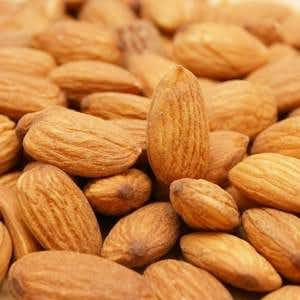
If you have been looking for ways to help control your blood pressure with minimal medication, you might want to consider a magnesium-rich diet. Whole foods like vegetables, nuts and fish can make a difference. We heard recently from a reader seeking this kind of advice.
How to Manage Variable Blood Pressure:
Q. I have high blood pressure. I was alarmed by a recent reading of 206/96. Everyday my pressure changes throughout the day, from 125/69 at one point up to 175/81 at another. Some days I get great readings.
My doctor has just put me on losartan three times a day. I lead a quiet life. Before the pandemic I was swimming three times a week and I’m planning to go back when it’s safe. My diet is vegetarian, and I have reduced my salt. I don’t drink alcohol, just one cup of coffee a day. What natural approaches could help me lower my blood pressure without additional medication?
A. It’s not unusual for blood pressure to change in the course of a day, but your blood pressure is extremely variable. Your doctor may need to do a more extensive workup to discover why.
Natural ways to lower blood pressure include exercise, meditation and periods of deep breathing. Eating magnesium-rich foods, drinking beet juice, pomegranate juice or purple grape juice may also help.
You will find a list of foods high in magnesium along with many other non-drug approaches in our eGuide to Blood Pressure Solutions. Keep reading to learn more.
Health Benefits of a Magnesium-Rich Diet:
Following a magnesium-rich diet may be an often-overlooked path to good health. A meta-analysis of many observational studies found that people who eat foods that are good sources of magnesium are less likely to suffer from many chronic conditions.
Studies of Diets:
Researchers looked at data from 40 different studies in nine countries (BMC Medicine, online Dec. 8, 2016). In these observational studies, people who ate the most magnesium-rich foods such as leafy greens, nuts, whole grains and fish had lower rates of heart disease, stroke and diabetes than those who ate the fewest such foods.
Reducing the Risk of Heart Failure and Stroke:
The investigators found that an additional 100 mg/day of magnesium didn’t seem to make a difference for heart attacks, but it reduced the risk of heart failure by 22 percent. The chance of a stroke dropped by 7 percent.
Increasing magnesium consumption by 100 mg/day lowered the likelihood of diabetes by 19 percent and reduced death from any cause by 10 percent. Actually, because the studies were not experimental trials, no cause-and-effect relationship can be established. The findings do suggest, however, that eating more magnesium-rich foods may have substantial health benefits.
How to Follow a Magnesium-Rich Diet:
If you are wondering how to get more magnesium-rich foods into your diet, this list may help:
Food Sources of Magnesium
- Almonds
- Avocado
- Baked Potato
- Banana
- Black-eyed peas
- Brown rice
- Cashews
- Halibut
- Lentils
- Mixed nuts
- Oatmeal
- Peanuts
- Shredded wheat
- Soybeans
- Spinach
- Yogurt
Many of these foods are found in abundance in the DASH diet (Dietary Approaches to Stop Hypertension) as well as a Mediterranean diet. Perhaps that helps explain why both those eating patterns have such well-established health benefits.
Citations
- Fang X et al, "Dietary magnesium intake and the risk of cardiovascular disease, type 2 diabetes, and all-cause mortality: a dose–response meta-analysis of prospective cohort studies." BMC Medicine, online Dec. 8, 2016. DOI: https://doi.org/10.1186/s12916-016-0742-z

